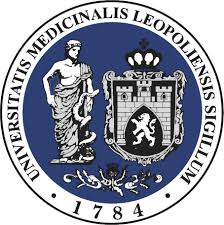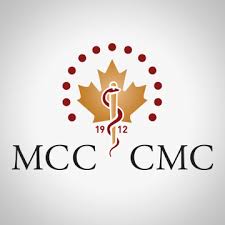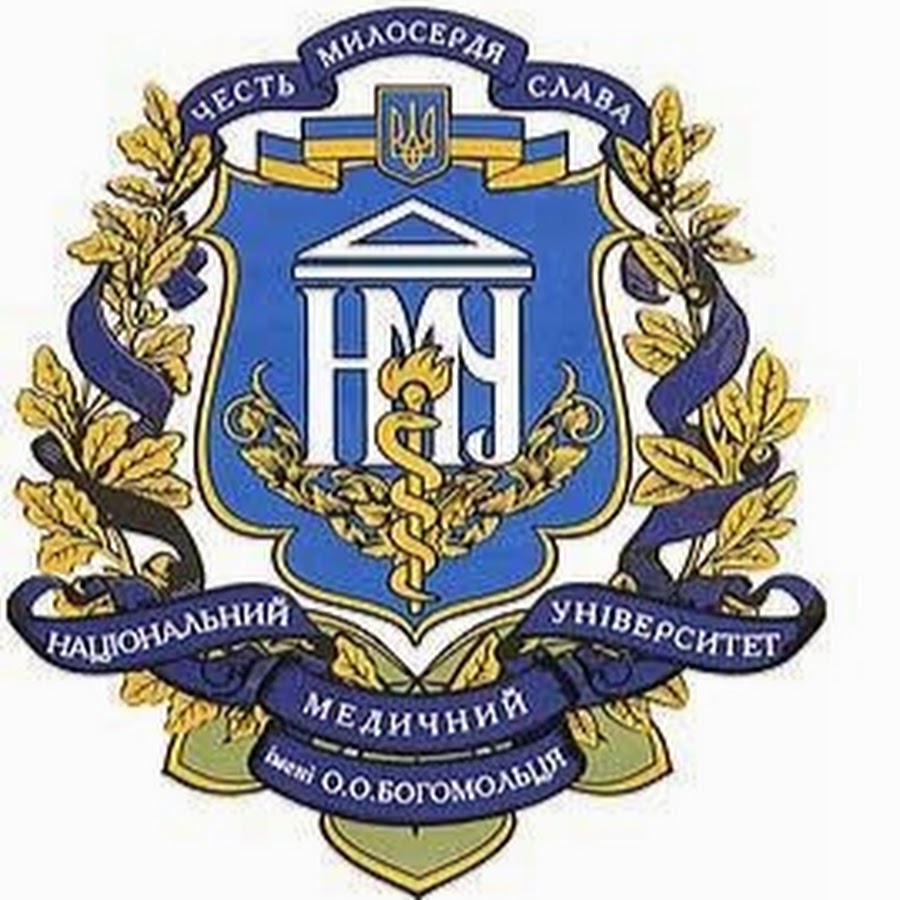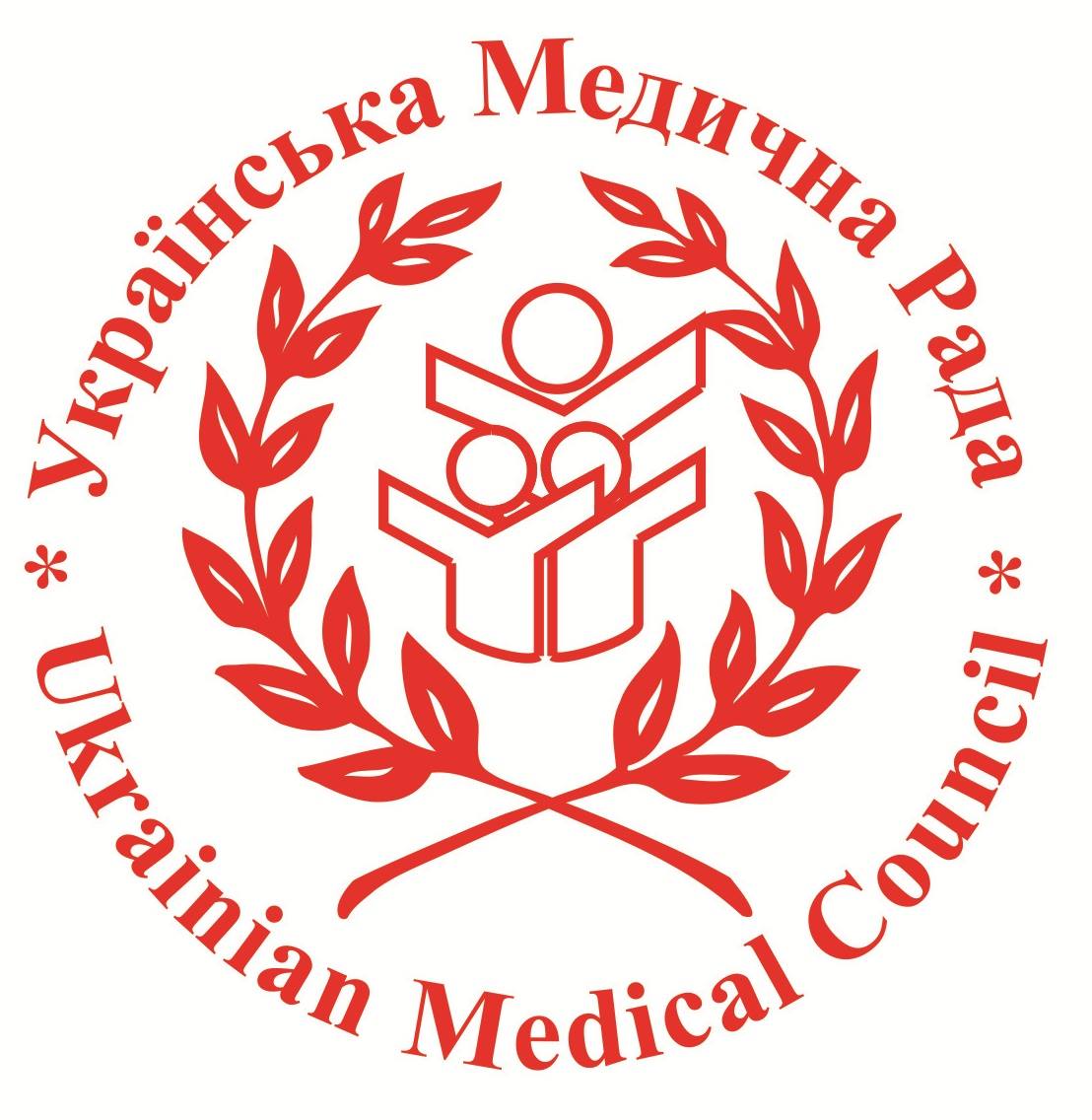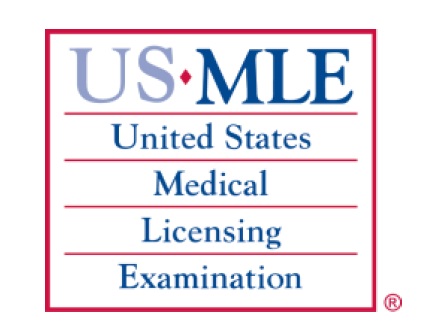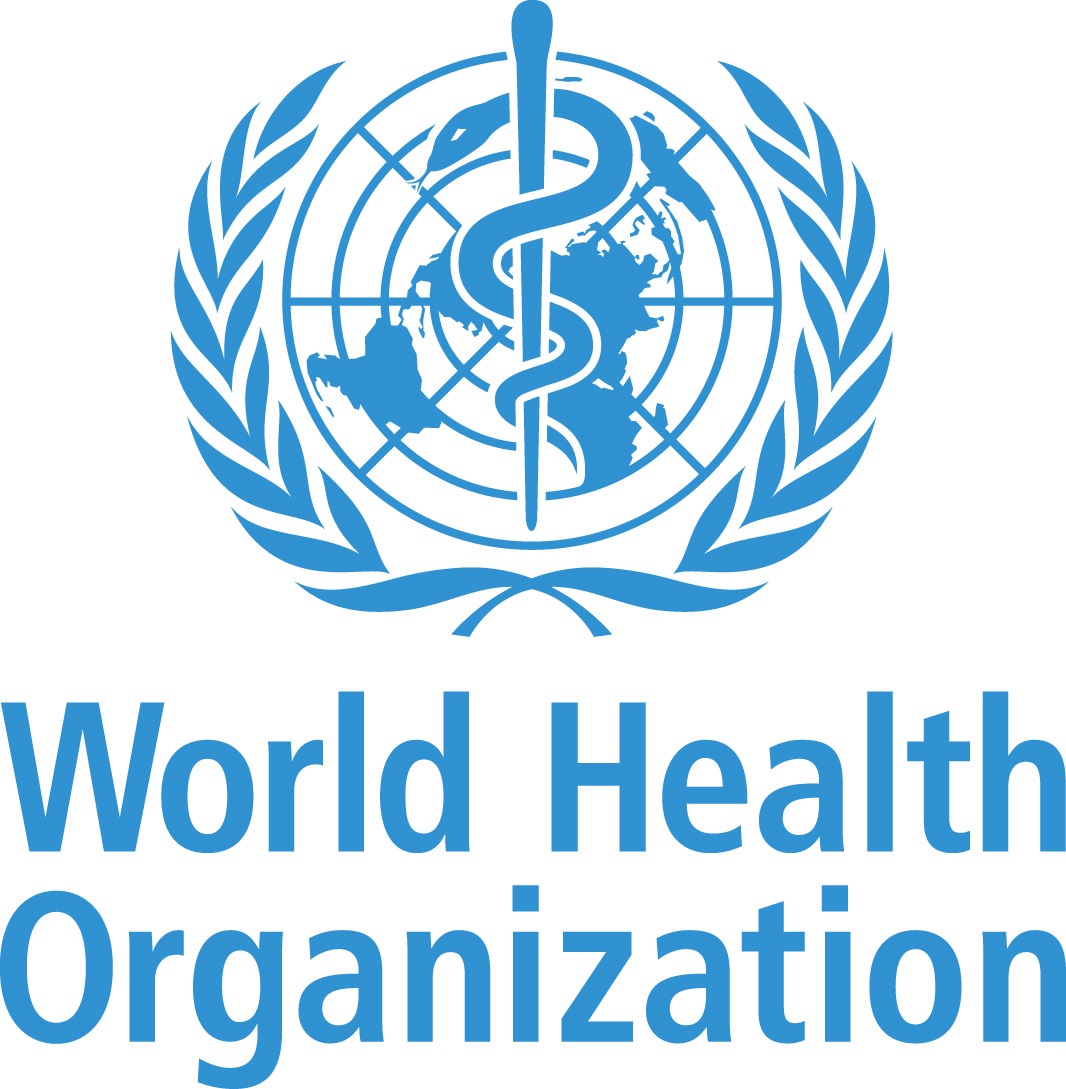KAZAN FEDERAL UNIVERSITY
LOCATION OF KAZAN FEDERAL UNIVERSITY, STUDY MBBS IN RUSSIA
Kremlyovskaya St, 18, Kazan, Respublika Tatarstan, Russia, 420008
MAP LOCATION
Airports :
Kazan International Airport is an airport located in Russia, around 25 km southeast of Kazan. It is the largest airport in Tatarstan, and the 15th busiest airport in Russia.
We MBBSUNIVERSITIES.COM guarantee you admission in the best medical colleges of RUSSIA with the best fee package.
We the team of doctors in MBBSUNIVERSITIES.COM had enough research through the medical colleges in RUSSIA and we will guide you to select the colleges for MBBS in RUSSIA
We guarantee you the cheapest package and minimum consultancy charges for MBBS ABROAD KAZAN FEDERAL UNIVERSITY is Recognised by WHO and Medical council of India we are the No. 1 MBBS admission In Abroad Education guideline providers in India because we are doctors not agents. Just call our doctors because doctors can guide students better than agents - 1800-123-5619
They will give you information to select the Best Universities & be Your Complete Guide. They will provide you Step-by-step Guide for MBBS in Abroad and will help you to get DIRECT ADMISSION IN MBBS
DURATION OF THE COURSE – 5+1
MEDIUM OF INSTRUCTION – ENGLISH
CURRENCY- RUSSIAN RUBLE
EXCHANGE RATE
1 RUSSIAN RUBLE – 1.06 INR
NATIONAL LANGUAGE- RUSSIAN
About the country

Russia officially the Russian is a transcontinental country in Eastern Europeand North Asia. At 17,125,200 square kilometres (6,612,100 sq mi), Russia is the largest country in the world by area, covering more than one-eighth of the Earth's inhabited land area, and the ninth most populous, with about 146.8 million people as of 2019, excluding Crimea. About 77% of the population live in the western, European part of the country. Russia's capital, Moscow, is the largest metropolitan area in Europe proper and one of the largest cities in the world; other major cities include Saint Petersburg, Novosibirsk, Yekaterinburg and Nizhny Novgorod. Extending across the entirety of Northern Asia and much of Eastern Europe, Russia spans eleven time zones and incorporates a wide range of environments and landforms. From northwest to southeast, Russia shares land borders with Norway, Finland, Estonia, Latvia, Lithuania and Poland (both with Kaliningrad Oblast), Belarus, Ukraine, Georgia, Azerbaijan, Kazakhstan, China, Mongolia and North Korea. It shares maritime borders with Japan by the Sea of Okhotsk and the U.S.state of Alaska across the Bering Strait. However, Russia recognises two more countries that border it, Abkhazia and South Ossetia, both of which are internationally recognized as parts of Georgia.
The Russian Federation is recognized in international law as a successor state of the former Soviet Union. Russia continues to implement the international commitments of the USSR, and has assumed the USSR's permanent seat in the UN Security Council, membership in other international organisations, the rights and obligations under international treaties, and property and debts. Russia has a multifaceted foreign policy. As of 2009, it maintains diplomatic relations with 191 countries and has 144 embassies. The foreign policy is determined by the President and implemented by the Ministry of Foreign Affairs of Russia.
As the successor to a former superpower, Russia's geopolitical status has often been debated, particularly in relation to unipolar and multipolar views on the global political system. While Russia is commonly accepted to be a great power, in recent years it has been characterized by a number of world leaders,scholars,commentators and politicians as a currently reinstating or potential superpower.

Russia is one of five permanent members of the UN Security Council. The country participates in the Quartet on the Middle Eastand the Six-party talks with North Korea. Russia is a member of the Council of Europe, OSCE, and APEC. Russia usually takes a leading role in regional organisations such as the CIS, EurAsEC, CSTO, and the SCO. Russia became the 39th member state of the Council of Europe in 1996. In 1998, Russia ratified the European Convention on Human Rights. The legal basis for EU relations with Russia is the Partnership and Cooperation Agreement, which came into force in 1997. The Agreement recalls the parties' shared respect for democracy and human rights, political and economic freedom and commitment to international peace and security.In May 2003, the EU and Russia agreed to reinforce their cooperation on the basis of common values and shared interests. Former President Vladimir Putin had advocated a strategic partnership with close integration in various dimensions including establishment of EU-Russia Common Spaces. From the dissolution of the Soviet Union, Russia has initially developed a friendlier relationship with the United States and NATO, however today, the trilateral relationship has significantly deteriorated due to several issues and conflicts between Russia and the Western countries. The NATO-Russia Council was established in 2002 to allow the United States, Russia and the 27 allies in NATO to work together as equal partners to pursue opportunities for joint collaboration.
Russia is the largest country in the world; its total area is 17,075,200 square kilometres (6,592,800 sq mi). This makes it larger than the continents of Oceania, Europe and Antarctica.. It lies between latitudes 41° and 82° N, and longitudes 19° E and 169° W.
Russia's territorial expansion was achieved largely in the late 16th century under the Cossack Yermak Timofeyevich during the reign of Ivan the Terrible, at a time when competing city-states in the western regions of Russia had banded together to form one country. Yermak mustered an army and pushed eastward where he conquered nearly all the lands once belonging to the Mongols, defeating their ruler, Khan Kuchum.
Russia has a wide natural resource base, including major deposits of timber, petroleum, natural gas, coal, ores and other mineral resources.
CLIMATE
The enormous size of Russia and the remoteness of many areas from the sea result in the dominance of the humid continental climate, which is prevalent in all parts of the country except for the tundra and the extreme southwest. Mountains in the south obstruct the flow of warm air masses from the Indian Ocean, while the plain of the west and north makes the country open to Arctic and Atlantic influences.
Most of Northern European Russia and Siberia has a subarctic climate, with extremely severe winters in the inner regions of Northeast Siberia (mostly the Sakha Republic, where the Northern Pole of Cold is located with the record low temperature of −71.2 °C or −96.2 °F), and more moderate winters elsewhere. Both the strip of land along the shore of the Arctic Ocean and the Russian Arctic islands have a polar climate.
The coastal part of Krasnodar Krai on the Black Sea, most notably in Sochi, possesses a humid subtropical climate with mild and wet winters. In many regions of East Siberia and the Far East, winter is dry compared to summer; other parts of the country experience more even precipitation across seasons. Winter precipitation in most parts of the country usually falls as snow. The region along the Lower Volga and Caspian Sea coast, as well as some areas of southernmost Siberia, possesses a semi-arid climate.
Kazan – the THIRD capital of Russia
Kazan – is a city with millennial history, which unites the culture and traditions of the Orient and the Occident; the Third Capital of Russia, one of the largest economical, political, scientific and educational, cultural and sport center of the country. Kazan is situated in the center of Europe. The University is located in the historical center of Kazan city and it’s easy to get from the dormitory to University by underground metro. Kazan is a world-known place for international sport and cultural events like Universiade 2013 (World Student Games), FINA World Aquatics Championships 2015, 21st FIFA World Cup (2018), International Festival of Muslim Cinema, International Classical Ballet And Opera Festivals.
-
High level of safety and quality of urban environment
-
Interfaith consent for many years
-
High level of medicine and public health services
-
World-level infrastructure
-
4 th place in Russia by the quality of life
-
9 th place in Russia by the quality of education By the data of UN Development program
KAZAN IS THE MAJOR CITY OF TATARS IN RUSSIA
The old, cultural and historic city of Kazan has now gain the popularity as "Third Capital of Russia"! The city is having amazing charisma for cheering its people and visitors. The city is the 8th most populated city of Russia with the population of 1,143,535. It is the capital of the Tatarstan Republic of Russia. It is the home of thousands of Muslims and Christians as the largest Tatars community.
IMPORTANT FACTS ABOUT KAZAN
-
Kazan is also honored as the third capital of Russia.
-
It is a famous sports center in Russia. The city hosted 2013 Universiade and many national hockey, boxing and swimming championships.
-
It is also one of the hosting cities of 2018 FIFA world cup.
-
The city experiences Humid Continental Climate.
-
Summers have an average temperature of 20 degrees and winters have an average temperature of -10 degrees.
HISTORY OF KAZAN
-
Muslim Volga Burglars and Tatars of Golden Horde were the founders of the city.
-
It was the trade route for the Volga region.
-
The icon of ‘Our Lady Kazan’ was founded in 1579 in this city.
-
The city was the center for building ships for
ADMINISTRATION OF KAZAN
-
The city is the capital of Republic of Tatarstan.
-
The city has the municipal status of Kazan Urban Okrug.
-
The city is divided into seven districts.
CITY STRUCTURES
-
Kazan international airport lies 26 km from the city center.
-
The city is connected to Moscow, Ulyanovsk, Yoshkar-Ola and Yekaterinburg by the railway line.
-
Pneumocushion boats are used in winters for crossing the Volga River.
-
The city has two main bus stations.
-
The federal highway connects to Moscow and Ufa.
ECONOMY OF KAZAN
-
The city is one of the largest industrial and financial centers of Russia.
-
The city stands on the third position for total backings in Russia.
-
Chemicals, Petrochemicals, Mechanical works, Wheat and flour processing are the main industries here.
TOURISM IN KAZAN
-
Kazan is famous for the eye-catching sites in the city. It's the cultural center of Tatars in the world.
-
Kazan Kremlin is in the list of World Heritage site of UNESCO.
-
Kul Sharif Mosque, Roman Catholic Church, Temple of All religions, White Stone Catheredral of Annunciation, Baumana Fountain, and Fountain in Kremlin and Millennium Park Fountain are the top tourist attractions of the city.
STUDY MBBS IN RUSSIA
KAZAN FEDERAL UNIVERSITY
Kazan Federal University is located in Kazan, Russia. Founded in 1804 as Kazan Imperial University, famous mathematician Nikolai Ivanovich
INTERNATIONAL ASSOCIATION AND RANKINGS OF KAZAN FEDERAL UNIVERSITY
Study MBBS IN RUSSIA
Kazan University is an acknowledged center of academic excellence engaged in various forms of international cooperation.
-
300+ cooperation agreements with partners from 64 countries
-
At the moment KFU has about 300 partner agreements with universities and research centres from more than 64 countries all over the world. Thanks to its fruitful cooperation with some long-term partners KFU has taken advantage of participating in various research programs and implementing double degree programs.
-
KFU's cooperation development data is grouped on the geographical basis. You can find information about KFU's interaction with universities, academic organizations and centers of Europe, Asia, the CIS countries, and Oceania.
-
Bilateral Agreements - List of Partners
-
Europe
-
Asia
-
CIS-countries
-
America
-
Africa
-
Australia
-
Member of 15 International Academic Associations
KFU's academic profile
-
Over 44,000 students enrolled in all types of programs
-
6,657 international students from 94 countries*
-
687 degree programs in various disciplines
-
10 double-degree programs with partner universities
-
13 institutes, 3 higher schools, 1 faculty, 2 regional branches in Yelabuga and Naberezhnye Chelny
-
Nearly 4,000 faculty members
-
157 invited professors from world-renowned universities and research centers
International student mobility 2017
-
485 incoming students
-
326 outgoing students
KFU's research profile
-
150 world-class research laboratories (OpenLabs)
-
71 international projects
-
162 international scientific conferences and seminars with more than 1,400 international participants
-
2,328 publications in Scopus and Web of Science
Research areas
-
Biomedicine and pharmaceutics
-
Oil extraction, refining and petrochemistry
-
Infocommunication and aerospace technologies
-
Advanced materials
Priority research units
-
Translational 7P Medicine
-
AstroChallenge
-
EcoOil
-
Teacher 21
KFU's research and academic infrastructure
-
Nikolay Lobachevsky Scientific Library with over 5 million storage units, including 150,000 old and rare units
-
University Clinic with 836 beds and over 40,000 serviced district residents
-
8 Museums
-
Student campus (Universiade Village Dorm Complex) for 13,000 people
-
11 sports and cultural facilities
-
29 international academic and research centers
RANKINGS OF KAZAN FEDERAL UNIVERSITY
STUDY MBBS ABROAD
-
QS World Universities 2019 - 439
-
Times Higher Education 2019- 601-800
-
U. S. News Best Global Universities 2019 - 788
-
Moscow International University Ranking - 251
-
Academic Ranking of World Unviersities - 801-900
KAZAN FEDERAL UNIVERSITY IN REGIONAL RANKINGS
-
QS BRICS 2019 - 60
-
QS EECA 2019 - 42
-
THE BRICS & Emerging Economies University Rankings 2018 - 60
-
Forbes Rankings of Russian Universities 2018 - 19
-
THE Eurasia Rankings - 10
KFU in QS Rankings by Subject 2018
-
Linguistics - 101-150
-
Modern Languages - 151-200
-
Archaeology - 151-200
-
Education and Training - 201-250
-
English Language and Literature - 201-250
-
Arts and Humanities - 281
-
Mathematics - 301-350
-
Economics and Econometrics - 351-400
-
Physics and Astronomy - 351-400
Highlights of the international MBBS course in RUSSIA
STUDY MBBS IN RUSSIA , STUDY AT KAZAK FEDERAL UNIVERSITY
The answer is easy for over 46,000 students enjoying their studies at the second oldest university in Russia.
With Kazan Federal University, which has always been considered as a bridge between East and West, you can discover a world of ideas, diversity and culture. You will learn, grow, and explore your potential both in and out of the classroom.
Studying at Kazan Federal University makes a difference
With 210 years of high-quality education and outstanding research in a wide variety of fields, Kazan Federal is traditionally top-rated among Russia's higher educational institutions.
Highly acclaimed undergraduate and postgraduate education is provided by 3000 professors. Most of them hold doctoral degree while some represent influential scientific minds not only from Russia but also from the rest of the globe. It is their visionary guidance that empowers the graduates to become leaders in industry and academia.
For the last years, Kazan University has developed a robust scientific infrastructure, including 17 globally competitive research Centers of Excellence and 80 research and teaching world-class laboratories.
Scholarships & Fees
Annual tuition fee varies depending on the program chosen. Prices range from 73860 RUR for pre-university training up to 221820 RUR for some Ph.D. programs.
Kazan Federal University provides financial support (grants) for national and international candidates aiming at post-graduate studies in KFU priority areas.
You may also apply for a scholarship provided by the Russian Government for international students to study at Russian universities.
Looking to Live on Campus?
KFU students can live on or off campus. The university offers a variety of living facilities and comfortable apartments, including Universiade - 2013 Village dormitories with the capacity of 12000 living places. A medical center, drugstore, sports equipment rent station, copy center, laundry, beauty salon, cafeteria and other facilities are available here. Because space is limited, the application is required.
Student Activities & Organizations
Wellbeing of students and their integration are important priorities for the University. Whoever you are, and whatever your personal identity is, you will find others like you and will have an opportunity to meet a diversity of people, who will widen your horizons, challenge your assumptions and with whom you can share your particular beliefs and experiences.
It's easy to get involved. You can join around 50 student clubs and organizations.
City
Kazan is a multinational and multiconfessional city with millennium history, situated in the center of Europe. The University is located in the historical center of Kazan city and it's easy to get from the dormitory to University by underground metro. Kazan is a world-known place for international sport and cultural events like Universiade 2013 (World Student Games), FINA World Aquatics Championships 2015, 21st FIFA World Cup (2018), International Festival of Muslim Cinema, International Classical Ballet and Opera Festivals and others.
KAZAN FEDERAL UNIVERSITY
STUDY MBBS IN RUSSIA, STUDY MBBS AT KAZAN FEDERAL UNIVERSITY.
Kazan University is one of the oldest universities in Russia - it celebrated its 210th anniversary in 2014.
Founded in 1804 as Kazan Imperial University, famous mathematician Nikolai Ivanovich Lobachevsky served there as the rector from 1827 until 1846. In 1925, the university was renamed in honour of its most famous student Vladimir Ilyich Ulyanov (Lenin). The university is known as the birthplace of organic chemistry due to works by Aleksandr Butlerov, Vladimir Markovnikov, Aleksandr Arbuzov, and the birthplace of electron spin resonance discovered by Evgeny Zavoisky.
In 2010, Kazan University received the federal status. It is also one of 15 Russian universities that were selected to participate in 5–100 Russian Academic Excellence Project coordinated by the Government of the Russian Federation and aimed to improve their international competitiveness among the world’s leading research and educational centers.
As of November 1, 2015, the University consists of 16 Institutes, 3 Higher Schools, Faculty of Law, and 2 regional branches. More than 40,000 students enrolled in 479 degree programs at undergraduate and postgraduate level (including 85 doctoral and 8 double-degree programs with partner universities).
As of November 1, 2015, the University consists of 16 Institutes, 3 Higher Schools, Faculty of Law, and 2 regional branches. More than 40,000 students enrolled in 479 degree programs at undergraduate and postgraduate level (including 85 doctoral and 8 double-degree programs with partner universities).
Kazan University has gained its international fame thanks to its distinguished scholars and graduates whose achievements have had a beneficial effect on the whole mankind. The unique culture of our University has shaped the development of Kazan and the Volga region. The University's new federal status obtained in 2010 poses new interesting challenges and calls for new approaches in the rapidly changing world.
Today, Kazan Federal University is a dynamic modern University which participates in local and international cooperation, networking with academic and industry, boosting the region's human resources development, as well as top-level research and innovation in different areas. Multiple centers of excellence and world-class research and teaching laboratories have been established in recent years. Our participation in the Project 5-100 designates our determination to reach the highest levels of global educational rankings. What we have achieved up to now is an evidence of the right choice of strategy – from a classical to a research university where entrepreneurial and innovative activities are prominently represented.
The very foundation of Kazan University was directly linked to international academia. Some of the University's first teachers were German professors such as Johann Bartels, Franz Erdman and Christian Fren. The famous German professor Karl Fuchs, who was both the founder of Kazan Medical School and the first European researcher of Tatar history and culture, became the University's rector in the 1820s and was awarded the title of Honourable Citizen of Kazan.
KFU has partner agreements with approximately 190 universities and research centres from more than 53 countries all over the world. Thanks to its fruitful cooperation with the long-term partners such as Justus-Liebig University of Giessen (Germany), the Superior Institute of Materials and Advance Mechanics (ISMANS, France), Research Institute RIKEN (Japan) and many others, KFU has taken advantage of participating in various research programmes and implementing double diploma programs and cotutelle agreements.
Currently (2015–2016 academic year), about 3000 international students are studying in KFU on different academic programmes.
Each year, more than 900 students and faculty members of KFU visit foreign universities and research centres for various purposes, including international conferences. About 1500 specialists from abroad are involved in various scientific events, development and introduction of new courses, research collaboration and other international activity[12] at KFU. Many native speaking specialists teach Chinese, Korean, Farsi, German, Spanish, English and other foreign languages on a regular basis at KFU. Among the honorary doctors and professors of KFU there are Vladimir Minkin, Alexei Starobinsky, Ichak Kalderon Adizes, Rashid Sunyaev, Anatole Abragam, Karl Alexander Müller, Brebis Bleaney, Ryoji Noyori, Mikhail Piotrovsky, Vitaly Ginzburg, Marat Yusupov and other famous scientists and Nobel prizers.
Every year KFU academic staff carry out on average 40 joint international projects and get individual support for research and study from DAAD, DFG, Volkswagen Foundation, NSF, European Commission (Tempus, FP7, Marie-Curie Actions, Erasmus-Mundus, etc.) and other grant making organizations.
KFU carry out several big projects on Mega-grants received from the Russian Government in the framework of Resolution No.220 of the Government of the Russian Federation "On measures designed to attract the world’s leading scientists to Russian institutions of higher learning, research organizations of the governmental academies of sciences, and governmental research centers of the Russian Federation" and Resolution No 218 of the Government of the Russian Federation "On promoting cooperation between higher educational institutions and organizations implementing comprehensive high-technology production":
-
International research laboratory "Neurobiology. Early activity in the developing brain"[15] supervised by prof. Rustem Khazipov. The project is implemented jointly with the Institut national de la sante et de la recherche medicale (INSERM)[16] (France);
-
Joint project of KFU and «Nizhnekamskneftekhim»: "Increasing effectiveness for obtaining monomers of synthetic rubber by development and distribution of advanced catalysts of isoamylene dehydration".
-
Joint project of KFU and TNG Group:«Development of innovative technologies and industrial management of equipment and software for effective investigation of resources for the purpose of identification of hydrocarbon deposits and supervision of their development».
-
Joint project of KFU and "Tasma" Co.: "Development and Production of competitive photorecording materials".
Starting from 2011 Kazan University implements a large-scale project "Pharma 2020" financed within Federal Target Program of Russian Federation "Development of pharmaceutical and medical industry till 2020 and following perspectives" (Pharma-2020). Research and Education Center of Pharmaceutics was established providing interdisciplinary research for development and production of innovative drugs.
The University administration and faculty have paid special attention to the European Tempus and Erasmus scheme for cooperation, with over a dozen large-scale projects which have been successfully implemented during the last 20 years. Today KFU students and academic staff enjoy wonderful opportunities of training at best European universities as part of both "Integration, Interaction and Institutions (Triple I)" and "Aurora" projects (Erasmus Mundus program). These projects often reach beyond the University, making it a centre of entirely new regional research and educational networks involved in international collaboration.
LIBRARY
Kazan University Nikolai Lobachevsky Scientific Library has one of the world's most important bibliographical collections, including 15,000 manuscripts and 3,000 rare books. Opened in 1809, it first contained Count G. Potemkin's books brought to Kazan in 1799 mixed with collections of the earliest bibliophiles V. Polyansky and N. Bulich. Subsequently, the collections of Solovetsky Monasterywere added to the library.
These original books remain and are kept in the special depository of the library. In this special collection are Arabic manuscripts of philosophers and scholars Mansur Al-Hallaj and Avicenna (11th century) and Ashshakhrestani (12th century), a manuscript copy of the Pentateuch, the first Russian printed book "The Apostle" (1564), the "Books of Kingdoms" by Francisco Skorin (1518) and the "Code of Tsar Alexis Mikhailovich" (1649). The Library has first editions of the 18th-century books by Pushkin, Griboyedov, Gogol, Nasíri and Tuqay.
The library contains many 19th-century periodicals, and literature about Kazan and the surrounding region. The library boasts itself as "the pride of the University and an invaluable source of information for any researcher." The original library building was built between 1825 and 1833 by Rector N. Lobachevsky, who was at the same time the chief librarian of the university. The library, which now bears his name, is still growing, and even its new building cannot house all the collections. Kazan University also has many museums.
Kazan Federal University's primary goals are:
-
to generate, concentrate and spread knowledge, competences and technologies in response to pertinent global challenges;
-
to cherish and multiply spiritual values of the humankind;
-
to educate professionals capable of becoming the intellectual elite and able to act in a fast-paced world;
-
to ensure synergistic development of science and technology based on integration of education and research;
-
to facilitate innovative development of Russian science and education in priority areas.
ACCREDATIONS OF KAZAN FEDERAL UNIVERSITY
Kazan Federal University is a state-licensed higher education institute. Kazan Federal University is licensed and accredited by the Ministry of Education and Science to hold educational activities in the field of higher education (License Series 90Л01, Reg. # 0000747 April 23, 2013; Сertificate of State Accreditation, Series 90A01, Reg. 0000870 from August 16, 2013).
FEE STRUCTURE OF KAZAN FEDERAL UNIVERSITY. Study MBBS in KAZAN FEERAL UNIVERSITY
We Will Upload Complete 2019 Fee Structure!
We Are At Your Service.
ACCOMODATION AND LIFE IN KAZAN FEDERAL UNIVERSITY
Kazan Federal University Campus
KFU students can live on or off campus. The university offers a variety of living facilities and comfortable apartments, including Universiade – 2013 Village dormitories with the capacity of 12000 living places. A medical center, drugstore, sports equipment rent station, copy center, laundry, beauty salon, cafeteria and other facilities are available here. Because space is limited, the application is required.
Admission process for MBBS course in RUSSIA
In order to take admission in KAZAN FEDERAL UNIVERSITY a student must have qualified the NEET exam. The students with a score of at least 60 % marks are eligible to study in KAZAN FEDERAL .The subjects requisite to pursue MBBS at KAZAN FEDERAL University are Biology, Physics and Chemistry.
Required documents for MBBS IN RUSSIA
MBBS IN KAZAN FEDERAL UNIVERSITY
Kazan Federal University is a community of smart and welcoming people who love their alma mater, cherish its traditions and are eager to help you explore what it means to be a KFU student.
We seek promising students who will contribute to our community during their college years and to society throughout their lives.
While academic accomplishment is important, the Admission Unit takes into account many other factors—strong personal qualities, special talents or excellence of all kinds, and the ability to take advantage of available resources and opportunities.
NOTE: After finishing the Pre-university training, you MUST TAKE exams in order to become a student of Kazan Federal University. The exams are mandatory for all applicants, whether they studied at the preparatory school at KFU or at any other university.
Amendments to the Federal Law “On the legal status of foreign citizens in the Russian Federation” entered into force.
Since 1 January 2018, new rules for students of pre-university courses are in place.
The abovementioned amendments allow foreign citizens who have completed their studies in the preparatory school and have been recommended for enrollment in the main educational programs (bachelor degree, master degree, specialist degree programs) to prolong their stay in the Russian Federation without the need to return to their native country.
The conditions for the extension of the stay after the completion of studies in preparatory school are the following:
All the documents of education and/or qualification, issued in foreign countries, must undergo the procedure of academic recognition.
-
Passing admission tests (recommendations for enrollment);
-
Signing a contract on provision of educational services;
-
Submitting all the necessary documents for study in compliance with the admission procedure (if necessary, the document of education must be legalized as follows: consular certification or apostille; notarized translation of the document of education, notarized translation of passport);
-
Paying tuition fees in full amount.
REQUIRED DOCCUMENTS FOR MBBS IN RUSSIA MBBS IN KAZAK FEDERAL UNIVERSITY
Please make sure you have the following documents upon arrival to Kazan Federal University
-
valid passport
-
valid student visa issued with the invitation of KFU or the Russian Ministry of Education
-
migration card
-
medical certificate including AIDS test
-
medical insurance
-
confirmation of financial resources
COURSE DURATION
Course duration is of 5 years + 1 year internship.
Reasons to Join hands with the best team of doctors MBBSUNIVERSITIES.COM
-
Our doctors are honest with students and parents, and provide the most reliable services, Free advice on wide range of topics from how to prepare for MCI/FMGE Screening test, Undergraduate & postgraduate programs application procedures, visas, scholarships and many other topics. Our assistance is transparent and efficient.
-
We provide login and password to all students and parents, so that parents can keep an eye & can check students report (education, health & social)
-
We always Send Students in Groups so that students feel comfortable and safe.
-
Application Form Processing in one step
-
Once the admission is confirmed we help student in receiving invitation letter from the ministry of health and education.
-
We help in preparing “visa to study” file for student, all our students get visa because firstly, we choose only wise and deserving students & secondly, we have experience of visa documentation from more than a decade.
-
We help students in buying air tickets at very cheaper rate.
-
Those who are in need of opening a bank account at university we provide Assistance in Opening Bank Account.
-
We provide FOREX card to all the students and also we provide guidance in foreign currency exchange before travelling to the university.
NEET compulsion for MBBS in Abroad
Qualifying the National Eligibility cum Entrance Test (NEET) is mandatory for students seeking to pursue MBBS courses from foreign medical institutions, the Medical Council of India (MCI) has declared via a public notice on March 8, 2018.
The information, which had already been made public earlier by the Ministry of Health and Family Welfare (MoHFW) during the time of the release of the NEET notification in February 2018, has now been officially confirmed through the MCI notice. As per the MCI, the existing practice of issuing eligibility certificate to candidates desirous of pursuing MBBS abroad will be done away with from June 1, 2018, onwards and the result of NEET will be treated as the new eligibility certificate from thereon.
The notification clarifies that the new rule has been introduced by the MCI with approval from the Ministry of Health and Family Welfare, Government of India. The ‘Screening Tests Regulations 2002’ and ‘Eligibility Requirement for Taking Admissions in an undergraduate medical course in Foreign Medical Institution Regulation, 2002’, which lay down the rules and regulations for candidates seeking to pursue or who already possess MBBS qualification from abroad, have been accordingly amended by the MCI.
The Central Board of Secondary Education (CBSE), the exam conducting body of NEET 2018, has published the MCI notice on its website on March 10, 2018, for the reference of NEET 2018 aspirants.
What Does MCI Notice Regarding NEET state?
“Public at large is hereby informed that in terms of Clause 4(2A) of the ‘Screening Test Regulation, 2002’ and Clause 8(iv) of the ‘Eligibility Requirement for Taking Admission in an undergraduate medical course in a Foreign Medical Institution Regulation, 2002’, an India National/Overseas Citizen of India who are desirous for taking admission in MBBS or its equivalent medical course in a medical University/College/Institute outside the country on or after 1st June, 2018 shall have to mandatorily qualify the NEET,” the notice reads. The notice further informs that “the requirement of Eligibility Certificate in respect of such person(s) who would take admission in MBBS or equivalent medical course in a medical university outside the country on or after 1st June, 2018, has been dispensed off. The result of the NEET for admission to MBBS Course shall deem to be treated as Eligibility Certificate for such persons.”
NEET Qualification certificate is the new 'eligibility certificate' for students dreaming of MBBS abroad
As per the previous MCI regulations, candidates seeking to study MBBS or equivalent medical courses from abroad were required to obtain an eligibility certificate from MCI if they wished to come back to India for practicing medicine. No candidate without an eligibility certificate from MCI was allowed to appear for Foreign Medical Graduate Examination (FMGE) screening test through which Indian nationals with foreign medical qualfications are granted permission to practice in India.
Now, with the introduction of new changes in MCI regulations, the earlier requirement of obtaining eligibility certificate has been dispensed off and NEET qualification status will be treated as the MCI eligibility certificate for a student seeking admission in MBBS abroad.
What are NEW REGULATIONS of MEDICAL COUNCIL OF INDIA
The Ministry of Health and Family Welfare (MoHFW) earlier clarified that this new rule of mandatorily qualifying NEET for admission to MBBS courses in abroad is not applicable to students who are already pursuing MBBS or equivalent degrees from outside India. “Students who have already taken admission under current regulations to pursue primary medical course by taking Eligibility Certificate from MCI are exempted from qualifying NEET”, stated the clarification note released by MoHFW on February 22, 2018.
The new MCI regulations making NEET mandatory for pursuing MBBS abroad will only be applicable to students seeking to pursue MBBS or equivalent qualification from abroad on or after June 1, 2018. Students who are already pursuing or have gotten admission in foreign medical institutions need not worry about qualifying NEET as long as they have the eligibility certificate issued by MCI.
Free MCI/ FMGE Screening test coaching (FMGE exam preparation at cheapest cost)
Who can Guide you best for FMGE/MCI Screening Test?
Doctors who are registered with MCI
Education consultants
Agents
Freelancing admission agencies
Students studying Abroad
We offer a free* online test series in partnership with the most well-known professors and institutes
Our teaching pattern
-
Topic wise test for all the 19 subjects, student can practice after finishing the topic to assess herself/himself.
-
Subject wise test for all the 19 subjects, student can practice after finishing the topic to assess herself/himself.
-
MCI/FMGE screening test pattern test (full question paper of 300 questions).
-
All question papers will be with time limit as in real time MCI/FMGE screening test.
-
Every time student appears for FMGE paper at our online portal they will feel as they are appearing for real MCI/FMGE screening test, this builds confidence in a student.
-
We give regular ranking according to country, university & overall, so the student can assess where he/she stands exactly.
-
All toppers get lot of study material for free.
-
Once a paper is finished you can recheck it anytime throughout your prescribed time.
-
Answer key is provided with explanation, gives an opportunity to understand better.
-
Our automatic reminding system will help you with making time table for how to study for MCI/FMGE screening test.
-
Every month you will get few hours to interact with doctors, so they can guide you regarding, how to pass MCI/FMGE screening test easily
-
We update our question bank every 6 months to ensure students get the latest questions to practice and pass MCI/FMGE screening test easily
-
Our lectures for all the 19 subjects are recorded by the top-notch faculty teaching for MCI/FMGE screening test from last 16 years from 2002 when MCI/FMGE screening test regulation was passed by Government of India
Studying at best university but finding it hard to pass MCI/FMGE screening test though you are studying in one of the best MBBS in Abroad Medical University and you are still finding it hard to study or revise your curriculum for MCI/FMGE screening test don’t get stressed we at MBBSUNIVERSITIES.com will help you to achieve your goal of becoming a world class doctor and passing MCI/FMGE screening test
Services provided by MBBSUNIVERSITIES.com
MBBSUNIVERSITIES.com is the best consultancy for MBBS admissions and is known for its professional approach. We guarantee admissions to the students who meets the eligibility criteria and provides us with passport and required documents at the right time. Depending on the eligibility criteria, he/she can take admission in
Philippines,
Bangladesh,
China,
Russia,
Kazakhstan,
Kyrgyzstan or
Ukraine through us.
Our doctors are skilled enough to give parents and students the best guidance they deserve, we will share our experience from how to decide a country and university & how to study for MCI/FMGE screening test, here you will get transparent information from those doctors who were once students, they will give you not only true information about MBBS Abroad but they will give information about real experience that they faced and overcome during their journey of becoming a doctor.
With offices in more than 100 cities we are always in reach of parents and students to provide them with the best and transparent services. Our mission is to provide real information to the medical aspirants who are wishing to pursue MBBS in Abroad, we understand parents put there hard earned money on stake when deciding MBBS abroad University for students that is why we give them true and transparent information that helps them take a better decision.
MCI APPROVED COLLEGES IN RUSSIA
-
Ryazan State Medical University
-
Altai State Medical University
-
Astrakhan State Medical Academy of Federal Agency of Health Care and Social Development
-
Astrakhan State Medical University
-
Bashkir State Medical University
-
Bashkirian State Medical University
-
Crimean Federal University
-
Dagestan State Medical University
-
Far Eastern Federal University
-
I. M. Sechenov First Moscow State Medical University
-
I. M. Sechenov Moscow Medical Academy
-
Immanuel Kant Baltic Federal University
-
Irkutsk State Medical University
-
Kabardino-Balkarian State University
-
Kazan Federal (Volga) University
-
Kazan State Medical University
-
Kemerovo State Medical Academy
-
Kuban State Medical University
-
Kursk State Medical University
-
Mari State University
-
Mordovia N.P.Ogerev State University
-
Moscow State University of Medicine and Dentistry
-
National Medical University
-
National Research Nuclear University "MIFI"
-
Nizhny Novgorod State Medical Academy
-
North Ossetian State Medical Academy
-
North-Caucasian State Humanitarian and Technological Academy, Cherkessk
-
North-Eastern Federal University named after MK Ammosov
-
Northern State Medical University
-
Novosibirsk National Research State University
-
Orel State University
-
Orenburg State Medical University
-
Penza State University
-
Peoples’s Friendship University of Russia
-
Perm State Medical University
-
Pskov State University
-
Rostov State Medical University
-
Russian National Research Medical University
-
Russian Peoples Friendship University
-
Russian State Medical University,Moscow
-
Ryazan State I P Pavlov Medical University
-
Saint Petersburg State Medical Academy
-
Saint Petersburg State Medical University
-
Saint-Petersburg Pavlov State Medical University
-
Saratov State Medical University
-
Saratovskiy State Medical University
-
Sechenov Moscow Medical Academy
-
Siberian State Medical University
-
Smolensk State Medical University
-
St. Petersburg State Pediatric Medical Academy
-
St. Petersburg State Pediatric Medical University
-
Stavropol State Medical University
-
Syktyvkar State University named after P Sorokin
-
Tambov State University
-
The Belgorod State University
-
The Chechen State University
-
The Chuvash State University named after I.N. Ulyanov
-
The First Moscow State Medical University
-
The First St. Petersburg State Medical University
-
Tombosky State University named after G.R. Derzhavin
-
Tula State University
-
Tver State Medical University
-
Ulyanovsk State University
-
Volgograd Medical Academy
-
Volgograd State Medical University
-
Voronezh State Medical University
-
Yaroslav-the-Wise Novgorod State University
-
Yaroslavl State Medical Academy
-
Yaroslavl State Medical Academy YSMA
-
Yaroslavl State Medical University



